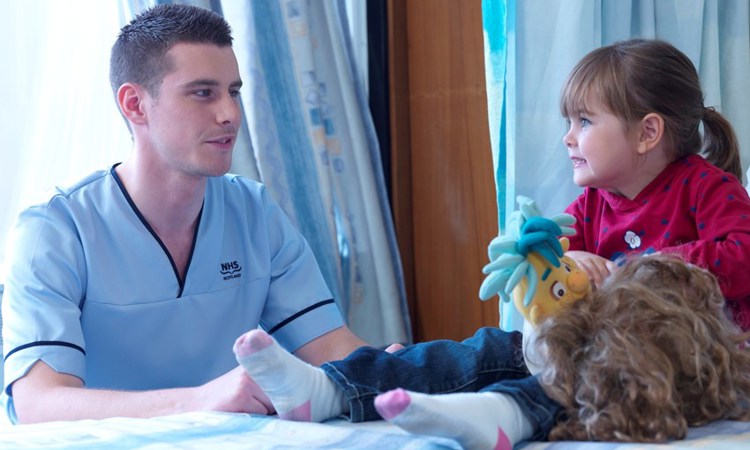Previous
Radiography support worker
You can become a speech and language therapy support worker by applying for a vacancy on our recruitment website. You could also do a Modern Apprenticeship.
Speech and language therapy support workers assist speech and language therapists. They help care for people with speech and communication difficulties and help those with eating, drinking, and swallowing problems.
To become a speech and language therapy support worker, you need a good standard of education. There are no specific entry requirements, but useful subjects include:
Speak to your guidance teacher about subjects offered at your school.

You may find it helpful to get some healthcare experience by doing a work placement or volunteering. You’ll get training, increase your knowledge, and learn new skills. This could help you when applying to university, college or a new job with NHSScotland.
A Modern Apprenticeship will help you get the knowledge, skills, and experience you need to reach your career goal.
Learn about the Modern Apprenticeship in Healthcare Support.
All Healthcare Support Modern Apprentices study 3 mandatory units:
You'll choose your remaining units from the clinical pathway options for speech and language therapy.
You'll work with speech and language therapists to help people of all ages to overcome speech, language, and swallowing problems. You’ll plan a series of therapy exercises as part of the client’s treatment plan.
As a speech and language therapy support worker, you’ll care for with people with a range of conditions including:
Tasks include:
You'll need these skills:
Speech and language therapy support workers work with other healthcare professionals, including:
You could work in:
When joining the NHS, you will work through the Mandatory Induction Standards. These standards are designed to help you work safely and must be completed within the first 3 to 6 months of employment.
You may also be encouraged while in the post to work towards further education qualifications. These may include:
You’ll have the opportunity to work closely with speech and language therapists and complete supervised training to develop your skills. Getting experience as a healthcare support worker will be helpful if you decide to go to university and study to become a registered speech and language therapist.

Discover the skills and qualifications you’ll need for each role and what the work will be like.
Explore careers
We'll guide you through the recruitment process, from applying online to interview preparation.
Help with recruitment